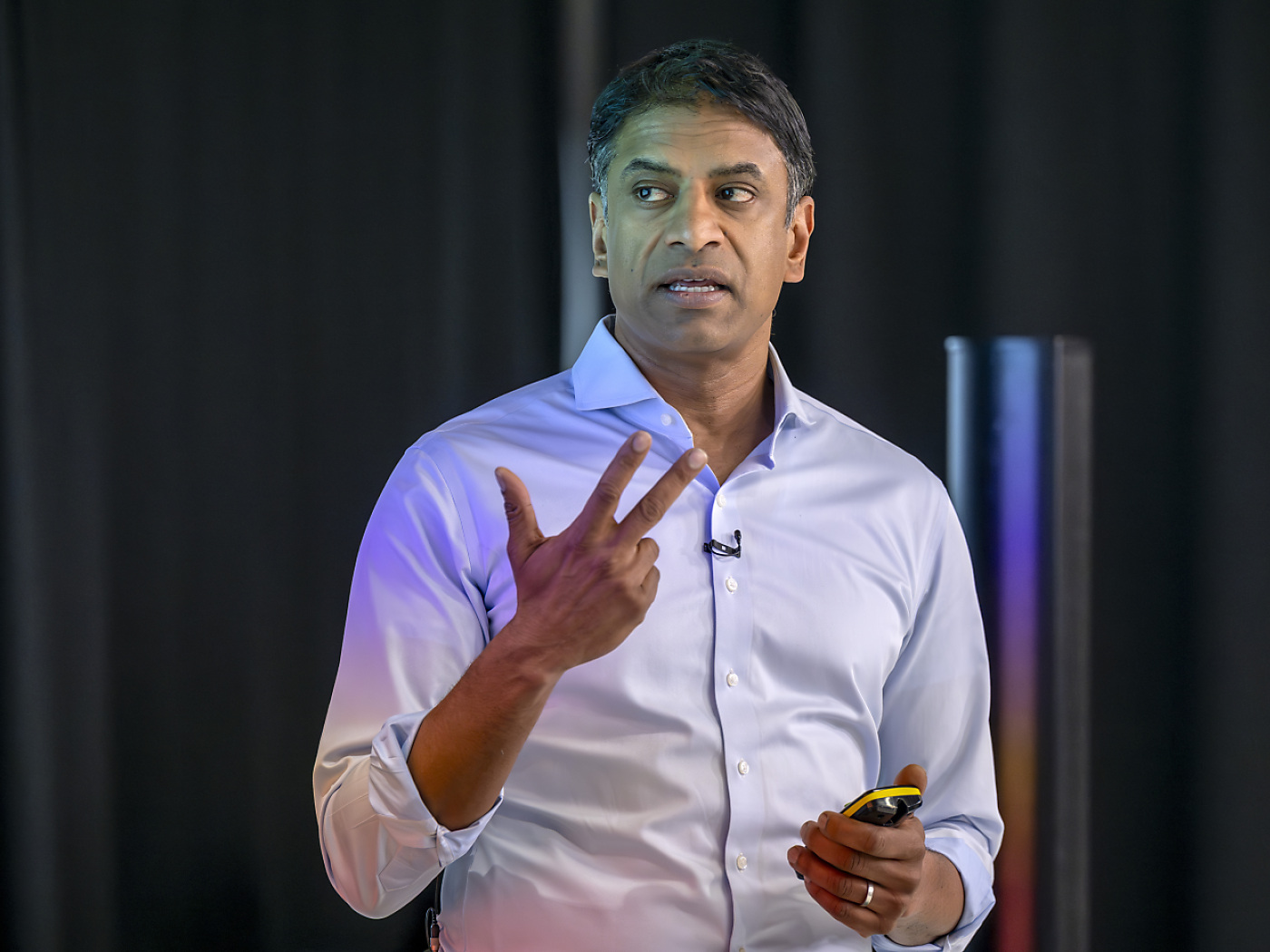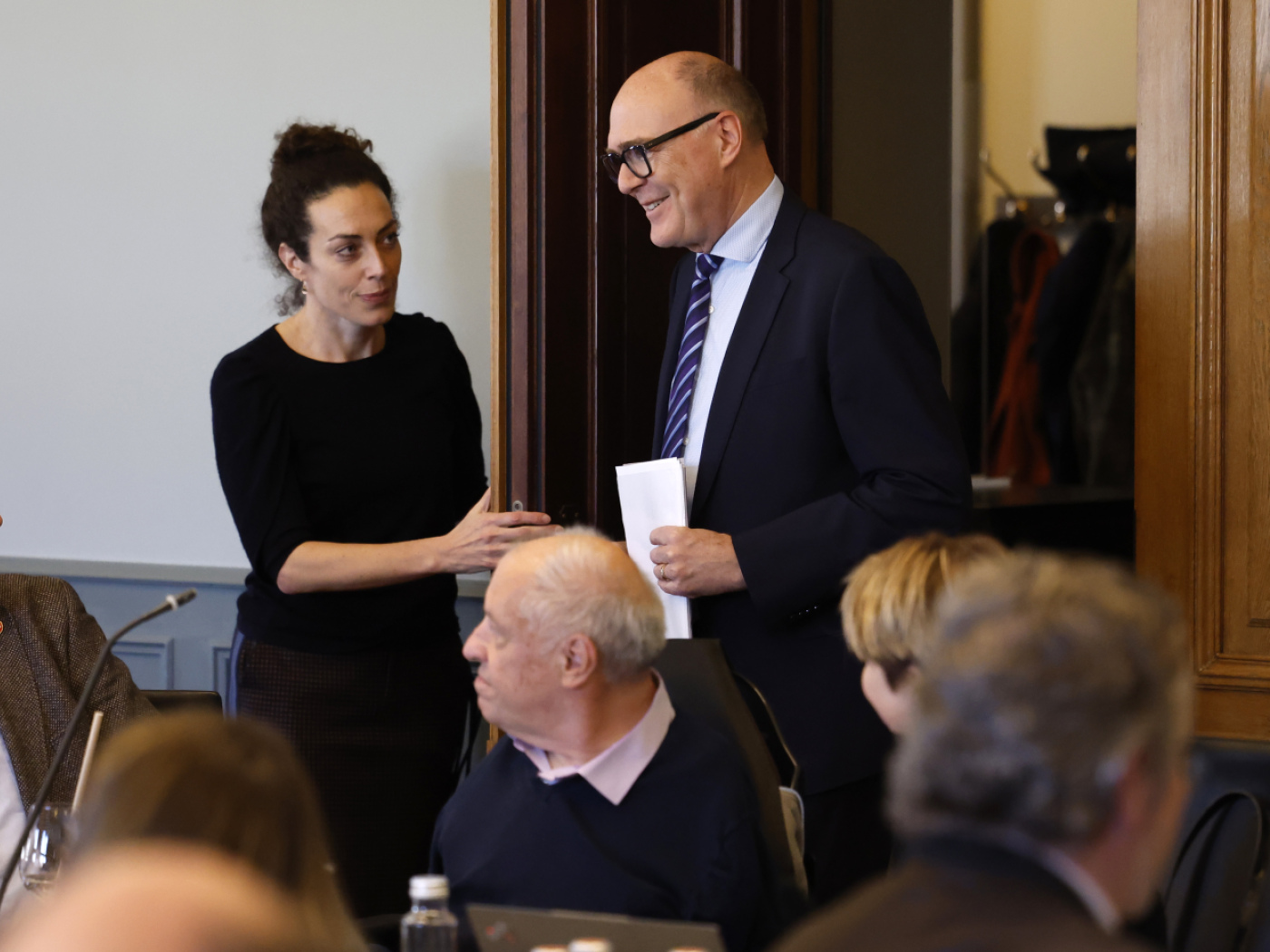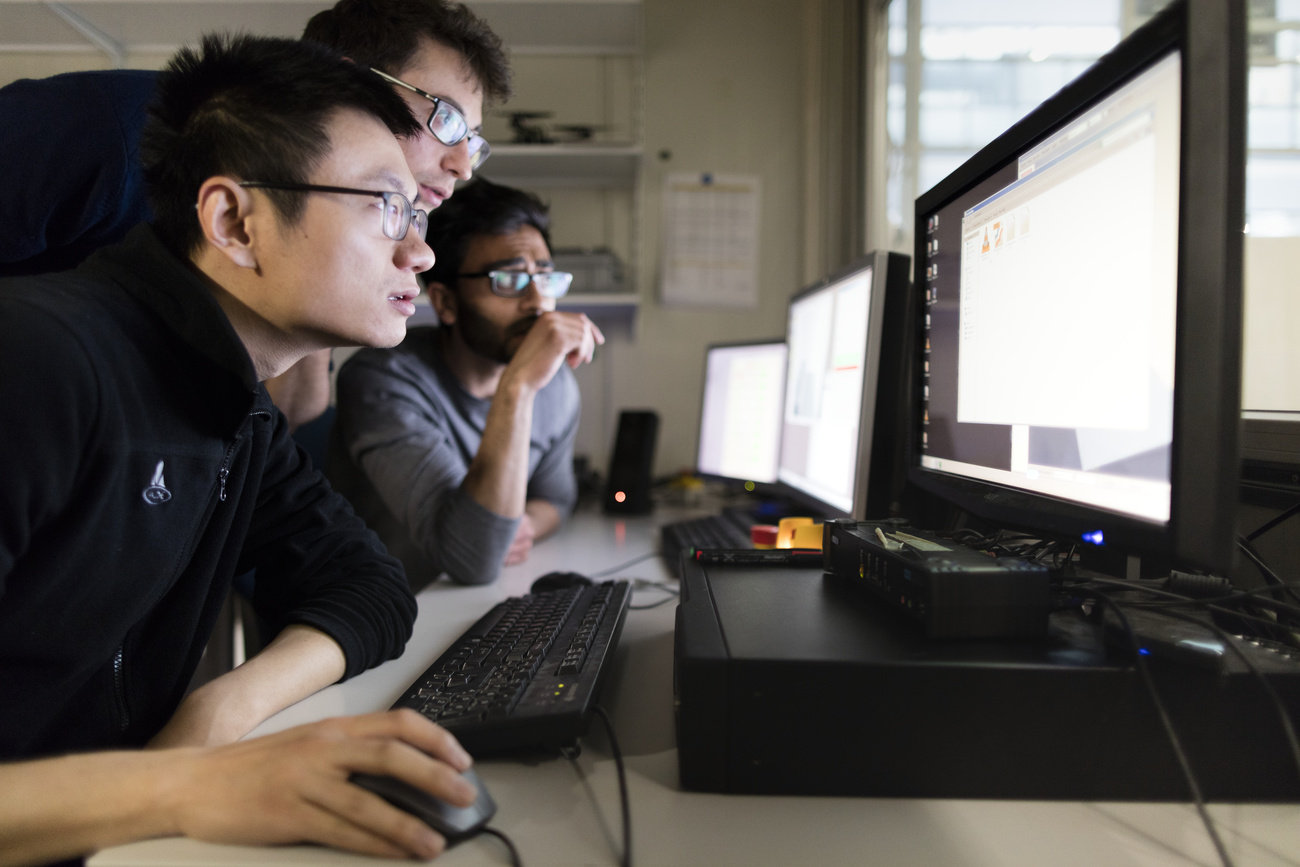ETH Zurich researchers pin down top learning strategy

Learning strategies and teaching models trigger fierce debates among educators. Researchers at the federal technology institute ETH Zurich have concluded that tackling a problem independently before receiving instruction delivers the best outcomes. The success rate for one of the institute’s largest courses increased by 20% using this approach, which runs counter to the dominant teaching formula.
“If you want to achieve ideal learning outcomes, it’s better to first puzzle over a problem that is specifically relevant to a topic before then exploring the underlying principles,” explains ETH professor Manu Kapur, who authored a study External linkon the subject together with postdoctoral scientist Tanmay Sinha. The key to this approach is the experience of productive failure—a theory conceptualised and developed by Kapur.
For a long time, the dominant paradigm in teaching has been that we learn new things best when someone explains them to us. First instruction, then practice. This is the educational formula followed across classrooms and lecture halls today, ETH Zurich notes in a statement published this week. But Kapur and Sinha have demonstrated that the opposite is the case.
In a meta-analysis of educational research from the past 15 years, they examined 53 studies with 166 comparative analyses, all dealing with the question of which learning strategy is more effective: instruction before practice or vice versa. The study focused on how well school-age and university students grasp concepts in mathematics, physics, chemistry, biology and medicine or were able to successfully apply them. General skills, such as sensemaking when reading and writing, were excluded from the study.
Almost half (45%) of the students tested were in the 12-18 age range and attending secondary school during the time of the study. Over a third (37%) were in university, and one in six (15%) were still in primary school. Almost half (43 percent) of students came from North America, 26% came from Europe and 28% from Asia.
Three times better than a good teacher
The results run counter to conventional classroom wisdom. All students achieved stronger learning success when they tried to independently solves exercises before the relevant concepts were explained to them. The difference in results was more pronounced for secondary school students and undergraduates than primary school children. The authors explain this may be the case because primary school students often lack sufficient knowledge in a subject matter to solve problems effectively and their analytical abilities are less mature.
“Practice before learning the theory is nearly twice as efficient as receiving a year of instruction from an outstanding teacher,” explains Kapur. Moreover, if students fail “productively” during the practice stage, their learning outcomes are up to three times better than what a very good teacher can achieve in a year.
Productive failure: the winning strategy of 4 As
What does it mean for students to fail productively? Sinha and Kapur say four mechanisms are at play, dubbed the four “As”: activate, awareness, affect, assembly.
First, a problem should activate as much relevant knowledge as possible. “Productive failure,” says Kapur, “requires a certain amount of prior knowledge. If a person wants to solve a statistical problem like finding the standard deviation productively, for example, they should at least be familiar with the most fundamental concepts such as the mean.” Second, students should recognise the deficit between what they do and do not know already; this gives them awareness. Third, this makes them more receptive to new concepts and sparks their interest in solving the problem, i.e. it changes their affect, or psychological state. The fourth and final stage is for the instructor or instructional material to provide an explanation that applies the new concept to solve the problem and demonstrates why the students’ solutions missed the target. This can be described as knowledge assembly.
“Learning outcomes depend on teaching in such a way that these four mechanisms all play a key role,” explains Kapur. This is particularly true when students tackle problems that can be grasped intuitively but for which they are still lacking the knowledge required to solve the problem unless they are taught the new concepts.
20% higher success rates at ETH Zurich
Kapur’s team tested their theory directly in one of the largest year-long courses taught at ETH, Linear Algebra, which enrols around 650 students from the Department of Mechanical and Process Engineering. The course structure follows the traditional approach: concepts are introduced in lectures and then applied and explored in exercises.
Students were given a set of tasks that they could voluntarily attempt to solve before five key lectures each semester. The goal of the exercises was productive failure. About 60% of students took advantage of the opportunity and completed the extra work. The results were impressive: historically, just over half of students (55%) on average pass the course. The success rate among those students who productively failed ahead of the lectures was 20 percent higher, and their marks were considerably better. For the authors, this is evidence that those who engage in productive failure learn more.

In compliance with the JTI standards
More: SWI swissinfo.ch certified by the Journalism Trust Initiative





















You can find an overview of ongoing debates with our journalists here . Please join us!
If you want to start a conversation about a topic raised in this article or want to report factual errors, email us at english@swissinfo.ch.